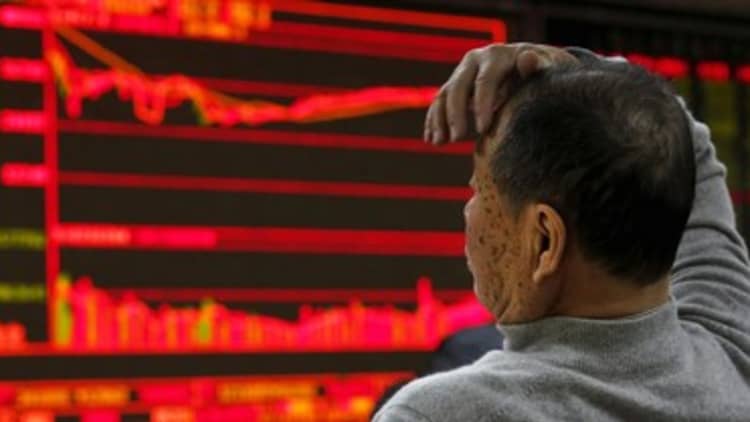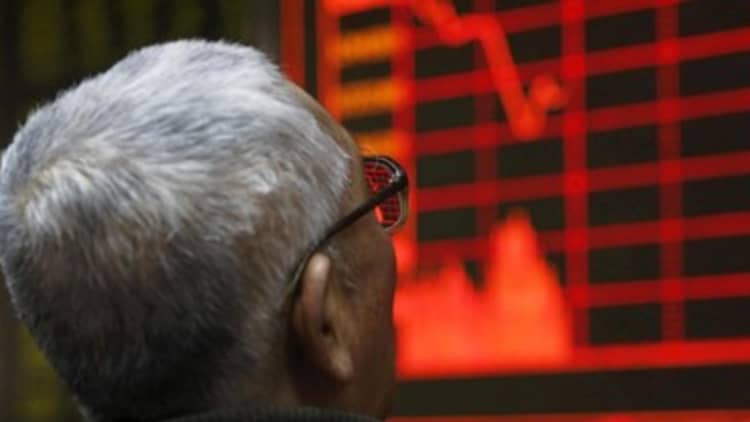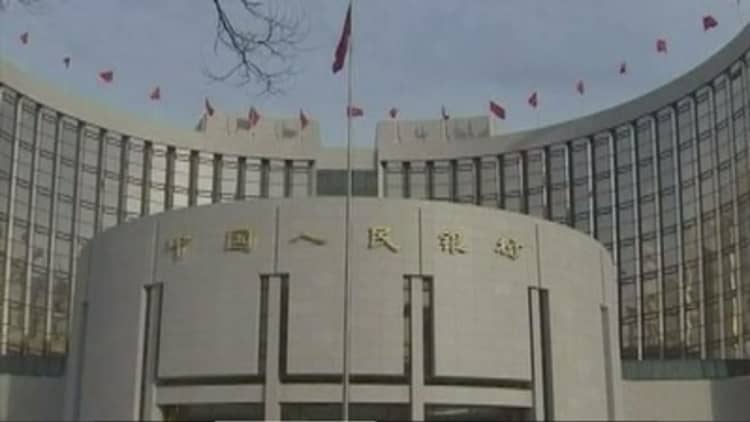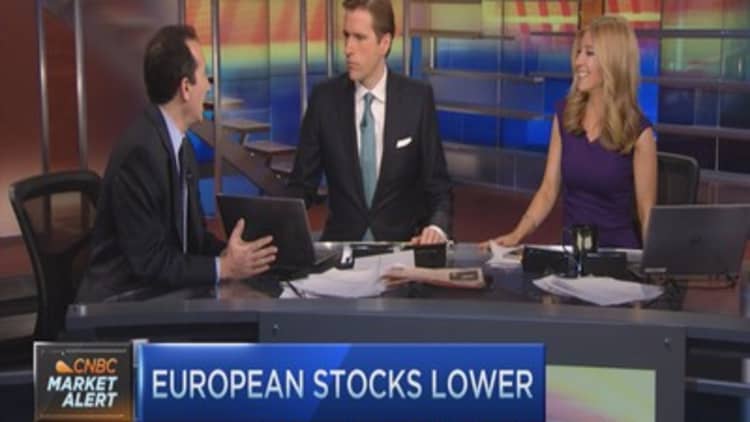



Chinese authorities Tuesday flooded the banking system with the largest cash injection since September, likely helping soothe equity markets a day after a stock rout that rocked global financial markets.
The People's Bank of China (PBOC) injected 130 billion yuan ($19.95 billion) during its open market operations. A Dow Jones report Tuesday noted that the move followed a PBOC decision Monday to not renew a credit line of the same amount to policy bank China Development Bank, a move which may have spurred investor worries that the central bank might tighten policy.
"Around this time of year, the PBOC does typically do large repo injections just for seasonal reasons," noted Julian Evans-Pritchard, a China economist at Capital Economics, citing an increase in demand for cash for the Lunar New Year holiday period. "That said, it seems a bit early to do that now given Chinese New Year is still a few weeks away. There might be an element of easing liquidity conditions a bit following the stock market fall yesterday."
In Monday's trading session, Chinese equities plunged after feeble manufacturing surveys revived concerns over the country's economic slowdown. The CSI300 index dipped 7 percent in afternoon trade Monday, resulting in trade being suspended for the day. The Shanghai Composite had tumbled 6.8 percent and the Shenzhen Composite plummeted 8.1 percent Monday.
On Tuesday, mainland markets gyrated between positive and negative territories.
Other factors may also have spurred liquidity concerns among equity traders.
The PBOC's decision to push more yuan into the markets may also be related to the continued flow of capital out of China. In the third quarter, total net capital outflows continued for a sixth straight quarter, reaching a record of $221 billion, according to data from Societe Generale.
That's likely to continue pressuring the renminbi, Societe Generale said. Because the PBOC appears to be targeting a slow depreciation of the currency, it's had to buy renminbi in the market, effectively tightening liquidity.
On Tuesday, Reuters reported that the PBOC was suspected of intervening to support the renminbi after the central bank set the daily mid-point fixing for the dollar to fetch 6.5169 yuan, marking the Chinese currency's weakest since 2011. China's central bank lets the rise or fall a maximum of 2 percent against the dollar relative to the official fixing rate.
Additionally, a ban on share sales by company shareholders with stakes larger than 5 percent was set to expire on January 8. That could free up more than 1.1 trillion yuan worth of holdings, or around 5.8 percent of total A-share free float, to be sold, Goldman Sachs estimated in a note Tuesday.
China may have more than 600 initial public offerings (IPOs) in the pipeline after a change to a "registration-based" system from one that required regulators' approval. Goldman Sachs estimated around 1.2 trillion yuan worth of equity financing may head to market, up 20 percent on year.
—By CNBC.Com's Leslie Shaffer; Follow her on Twitter @LeslieShaffer1




